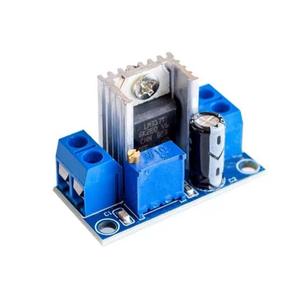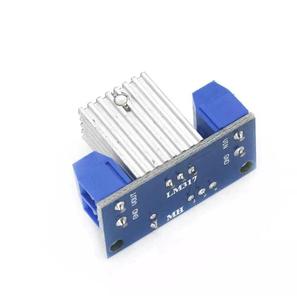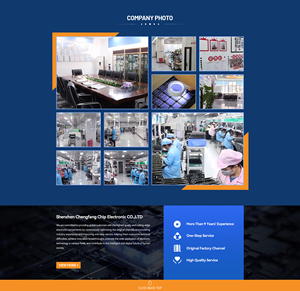
All categories
Featured selections
Trade Assurance
Buyer Central
Help Center
Get the app
Become a supplier

(71 products available)




















































Based on the datasheet of the LM317, it is known to come in various types and configurations. The information is as follows:
Adj Output Lm317
The Adj output LM317 is the standard version of the voltage regulator. It allows the user or the applicator to adjust the value of the output voltage by means of external resistors. With the application of the resistors, the output voltage can be set in the range of 1.25 to 37 volts depending on the needs and specifications of the client. The Adjustable version is very important in situations that need precise or flexible voltage settings. Common applications include power supplies and Equipment that require specific voltage levels.
Fixed Output Lm317
The Fixed output LM317 is a version of the regulator that provides preset output voltages. It comes in handy and becomes important when clients need specific fixed voltage levels for their operations and production activities. Fixed variants are available in the common output voltages of 1.25, 3, 5, 12, and 15 volts. The different output voltages are destined to be used in various electronic devices and circuits. These are usually very convenient in applications that do not require voltage adjustment.
High Current Lm317
Some applications demand higher load currents, which can make or break the standard LM317 ineffective. There are however high current versions or high current configurations of the LM317 that can regulate voltages even under higher current loads. These are particularly great for power applications where stability is required by the system even under high loads. They can hold up to currents in excess of 1.5 to 2 amps depending on the specific design. These high current variants also generally come with better thermal management features so as to not lose efficiency with too much heat.
Low Dropout Lm317
The standard LM317 requires a minimum voltage difference between the input and output to function properly. This is called the dropout voltage, and it is typically around 3 volts. However, there are versions in the market called Low Dropout LM317 or LDOs for short that require a smaller dropout voltage. These are great for situations where the input voltage needs to be closer to the output voltage. Basically, these types are important for battery-operated devices and other applications where voltage variations may not be constant.
The LM317 variable voltage regulator is a versatile electronic component that can be used to achieve multiple output voltage levels. This is done by adjusting the configuration of external resistors connected to the device.
To set the output voltage, the formula is as follows:
V out = V ref x (R2/R1 +1)
Where V out is the desired output voltage, V ref is the inherent reference voltage of the LM317 (approximately 1.25V), R1 and R2 are the values of the external resistors. The application of this formula means that the output voltage can thus be fine-tuned by simply changing the value of the resistors.
More specifically, when using the LM317 variable voltage regulator, the output voltage can be set from 1.25 to 37 volts by adjusting the resistance values of R1 and R2. R1 is the resistor that is put in series with the internal reference voltage. R2 is the resistor that is a variable resistor or a potentiometer. It gives the flexibility of adjustment, allowing precise control over the output voltage to meet various needs and specifications.
For practical applications, it is also very important to consider proper utilization of the components so that they are able to work effectively and efficiently at their best. For example, including capacitors at the input and output of the LM317 helps stabilize the voltage and improve the overall performance of the device.
In addition, the resistors used to set the output voltage should be chosen to limit the current through the adjustable pin to a safe range.
The LM317 can be used in power supplies, battery chargers, and equipment requiring stable voltage. Its adjustable output range allows for versatility in various circuits.
Following the LM317 Installation Manual helps understand and avoid mistakes during installation.
The LM317 is an adjustable voltage regulator that is commonly used in various industrial applications. The LM317 regulates and maintains stable output voltages for diverse applications, which is very important within industrial settings that use electronic equipment.
Batter Charging Systems
The LM317 can be used in battery charging systems where precise and controlled charging voltages are required to extend battery longevity. It prevents overcharging and undercharging by maintaining the right voltage levels. The LM317 is thus a very important component in the maintenance of battery-operated industrial systems and equipment.
Power Supply Circuits
Industrial machinery and equipment commonly use stable power supply circuits. Fluctuating input voltages can affect the operation of sensitive electronic components. The LM317 can be applied in such power supply circuits to ensure that the electronic components are working under their most optimal conditions. It is especially useful in low to moderate power applications. High-power applications can simply add the LM317 in series to higher-rated voltage regulators.
Instrumentation
Industrial measurement and control systems often require different operating voltages for sensors, transducers, and data acquisition equipment. The LM317 is a cost-effective solution for generating these required voltages. Its adjustability allows for fine-tuned configurations to meet specific voltage needs of different instruments. The LM317 helps ensure accurate readings and reliable performance in industrial monitoring systems.
Automation And Control Systems
PLC systems, motor controllers, and other automation devices operate in different voltage ranges. These systems can come across varying input voltage levels. This can endanger their operation due to fluctuations in voltage. The LM317 smoothens out this fluctuation and maintains the output voltage to be the required level. This ensures and improves the efficiency and effectiveness of the regulation and control systems for industrial operations.
The output voltage can be determined using the equation below:
V out = V ref x (R2/R1 +1)
Where R1 and R2 are the resistors used to set the output voltage, and V ref is the internal reference voltage of the LM317 (approximately 1.25V).
That the LM317 has quality and safety standards means that it is very reliable and safe to use. The following are quality and safety features of the LM317 regulated voltage:
Stability
This voltage regulator has a superb output voltage stability, meaning that only a small degree of variation in input voltage will affect its performance. This makes it very reliable, especially in situations or environments that are prone to instability.
Regulation Precision
The LM317 comes with a very low line and load regulation, meaning that it can maintain its output voltage even with variations in input voltage or output load. This is important for applications where precise voltage levels are critical.
Compliance With International Standards
The LM317 complies with many international standards of quality and safety. The most prominent ones are ISO and CE marks. This means that it has passed several tests and meets the required legal limits on performance, safety, and reliability.
Thermal Overload Protection
This particular feature ensures that if the temperature gets too high for any reason, the device will automatically shut down rather than risk burning itself out. This not only protects the LM317 itself but also guarantees the safety of the devices it is powering.
Current Limiting
The LM317 has internal current limiting capability that prevents it from drawing too much power. If it does, this can potentially damage either the LM317 or the connected load. This feature helps prevent overcurrent conditions that can lead to circuit failure and safety hazards.
A: The variable voltage regulator produced by the LM317 does the job of splitting an input voltage to power various circuits within a device. This feature makes it such a versatile component in electronic design.
A: The output voltage range of an LM317 is from 1.25 V to 37 V. This variance enables it to serve multiple applications all at once.
A: The maximum current that the LM317 can handle is up to 1.5A. There are also high-current variants that would allow for even greater output currents.
A: The type of capacitors that are advised for input and output in an LM317 are electrolytic capacitors. These provide better stabilization of voltage.
A: The thermal protection mechanism incorporated in the LM317 guarantees that the system will not be destroyed by excessive heat. The device will automatically shut down when it reaches an above-limit temperature.